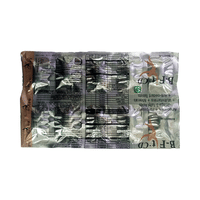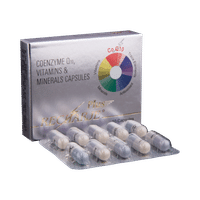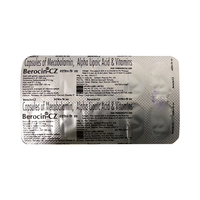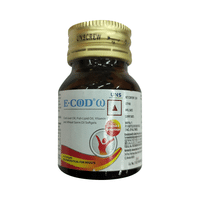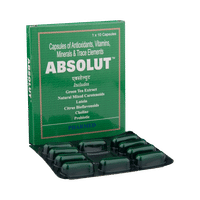Benidin M 4mg/25mg Tablet SR
Rs.128for 1 strip(s) (10 tablet sr each)
food interaction for Benidin M
alcohol interaction for Benidin M
pregnancy interaction for Benidin M
lactation interaction for Benidin M
food
alcohol
pregnancy
lactation
Benidin M 4mg/25mg Tablet SR is to be taken with food.
None
None
CAUTION
It is unsafe to consume alcohol with Benidin M 4mg/25mg Tablet SR.
UNSAFE
Benidin M 4mg/25mg Tablet SR may be unsafe to use during pregnancy. Although there are limited studies in humans, animal studies have shown harmful effects on the developing baby. Your doctor will weigh the benefits and any potential risks before prescribing it to you. Please consult your doctor.
CONSULT YOUR DOCTOR
Information regarding the use of Benidin M 4mg/25mg Tablet SR during breastfeeding is not available. Please consult your doctor.
CONSULT YOUR DOCTOR
SALT INFORMATION FOR Benidin M
Benidipine(4mg)
Uses
Benidipine is used in the treatment of Hypertension (high blood pressure) and Angina (heart-related chest pain).
How it works
Benidipine is a calcium channel blocker. It regulates the blood pressure by relaxing the blood vessels and reducing the pressure on them, thereby making it easier for the heart to pump more blood throughout the body. In this way, it normalizes the blood pressure in patients with high blood pressure. This enhanced blood flow also improves the oxygen flow in the body, thereby, preventing any heart-related chest pain (angina).
Common side effects
Fatigue, Ankle swelling, Sleepiness, Flushing (sense of warmth in the face, ears, neck and trunk), Headache, Dizziness, Palpitations, Nausea, Edema (swelling), Abdominal pain
Metoprolol Succinate(25mg)
Uses
Metoprolol Succinate is used in the treatment of Hypertension (high blood pressure), Angina (heart-related chest pain), Arrhythmia, heart attack and migraine.
How it works
Metoprolol Succinate is a long-acting beta blocker that works specifically on the heart. It works by slowing down the heart rate and makes the heart more efficient at pumping blood around the body.
Common side effects
Cold extremities, Headache, Dizziness, Slow heart rate, Rash, Depression, Diarrhea, Tiredness, Shortness of breath, Gastrointestinal disturbance, Hypotension (low blood pressure), Stroke, Chest pain, Confusion, Short-term memory loss, Sleepiness, Paresthesia (tingling or pricking sensation), Blurred vision, Sexual dysfunction, Ringing in ear, Hair loss, Agranulocytosis (deficiency of granulocytes in the blood), Dry eye, Worsening of psoriasis, Sweating, Photosensitivity, Taste change, Nightmares
SUBSTITUTES FOR Benidin M
No substitutes foundExpert advice FOR Benidin M
- You have been prescribed Benidipine to improve your blood pressure and/or to reduce the number and severity of angina attacks.
- Lowering blood pressure reduces the chance of future heart attack and stroke.
- Take it at the same time every day to help you remember to take it.
- A sudden drop in your blood pressure may occur, especially when you first start taking Benidipine. To lower the chance of feeling dizzy or passing out, rise slowly if you have been sitting or lying down.
- It can cause ankle or foot swelling. To reduce the swelling, raise your legs while you are sitting down. Talk to your doctor if it does not go away.
- It may cause dizziness. Do not drive or perform any activity that requires mental focus until you know how Benidipine affects you.
- Inform your doctor if you are pregnant, planning a pregnancy or breastfeeding.
Frequently asked questions FOR Benidin M
Benidipine
Q. What is the use of Benidipine?
Benidipine is a medicine used to treat hypertension (high blood pressure) and Angina (heart-related chest pain). It belongs to a group of medicines that block the calcium channels in the blood vessel. It works by relaxing the blood vessels in patients with high blood pressure. This widens the diameter of the blood vessels which helps the blood to pass through them more easily.
Q. What are the side effects of Benidipine?
Benidipine is generally well tolerated but sometimes can also be associated with side effects like headache, dizziness, flushing, palpitations, nausea, and stomach pain. It may also cause sleepiness, ankle swelling, and fatigue. These side effects are not common in everyone but may occur in some individuals. Do consult your doctor if you notice any side effects after taking this medicine.
Q. Is Benidipine good for patients of high blood pressure with kidney impairment?
Yes, Benidipine has been shown to have protective effects on the kidney cells, thereby preventing them from damage. It has also been shown to decrease protein leakage from the kidney in patients who have diabetes as well as high blood pressure.
Metoprolol Succinate
Q. How long does Metoprolol Succinate take to work?
The time taken by Metoprolol Succinate to start working varies from person to person. Usually, Metoprolol Succinate starts working within 15 minutes. However, in some patients, it may take up to 2 hours to start showing its beneficial effects. It starts acting slowly and the maximum or full effect is usually experienced within a span of 1 week. In case you do not feel any difference while taking Metoprolol Succinate, do not panic. The medicine exerts its beneficial effects when taken for a long time.
Q. Is taking Metoprolol Succinate dangerous?
Metoprolol Succinate is usually safe when taken as per the doctor’s prescription. This medicine exhibits dangerous effects if the medicine is stopped suddenly. Stopping the medicine suddenly can cause an abrupt increase in the heart rate and affect its activity, which can be dangerous for heart failure patients and can even lead to a heart attack in some patients. So, do not stop the medicine suddenly and take it for the prescribed duration.
Q. Does Metoprolol Succinate help you sleep better?
Metoprolol Succinate belongs to the beta-blockers class of medicine. Though their effect on sleep varies from person to person, it has been found that these medicines are known to alter the sleep pattern and disturb sleep in few patients. On the other hand, it has also been seen to promote better sleep in patients with increased heart rate and anxiety by calming down the heart and nerves. Do consult your doctor in case you have any sleep disturbances.













